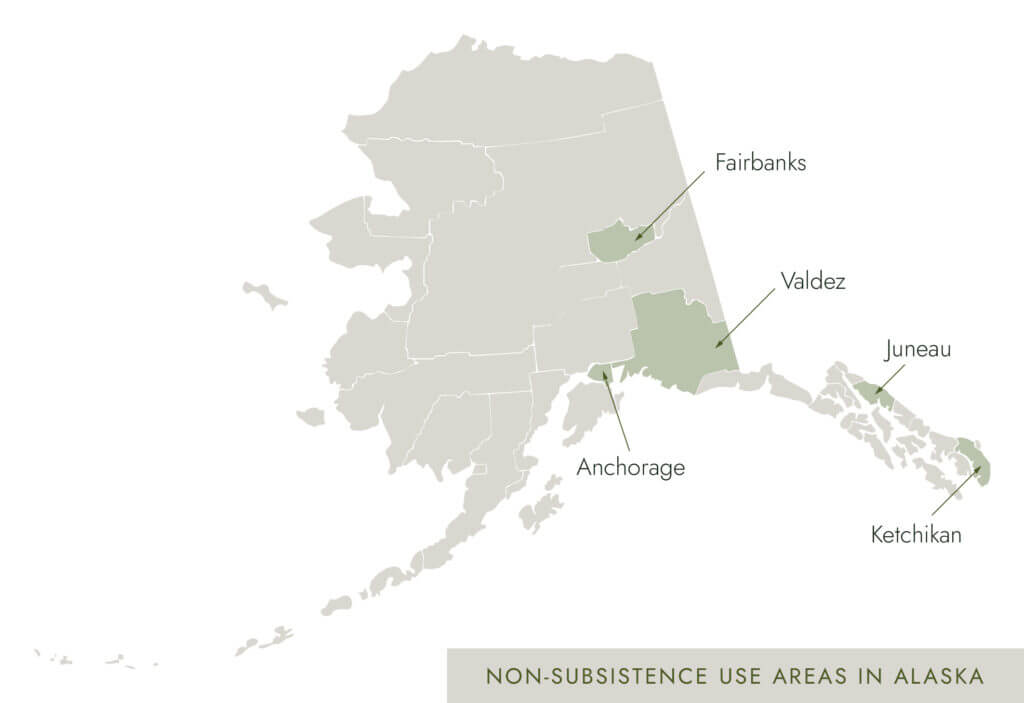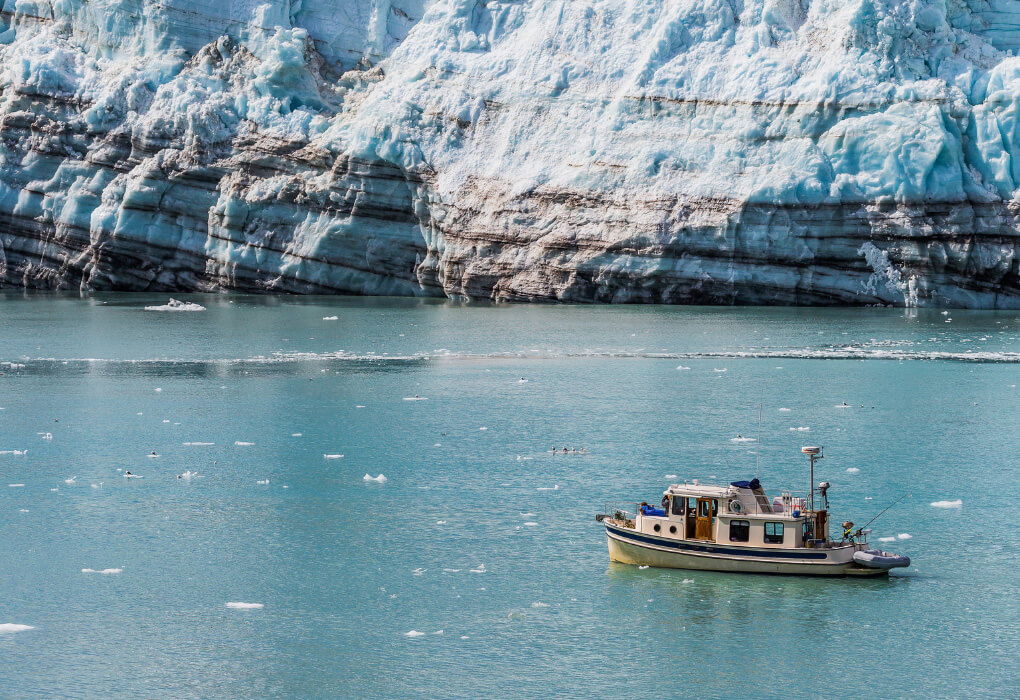By:
Planning your next fishing expedition in Alaska? To make sure you’re ready to go, you’ll need an Alaska Fishing License.
It’s easy to get, both resident and non-resident anglers can purchase licenses for an affordable fee.
The best part? Your annual license is valid from the date of purchase through December 31st each calendar year, so you can keep coming back to experience all the fishing Alaskan waters have to offer.
While there are a lot of different options and regulations when it comes to getting a fishing license in Alaska, it’s a simple process.
We’ve done all the research for you, so you’ll be reeling in chinook salmon in no time.
Table of Contents
Who Needs a Fishing License in Alaska
| Fishing License Requirements | Resident (under 18) | Non-Resident (under 16) |
| Sport fishing license | Not Required | Not Required |
| Harvest record card required | Required | Required |
Residents of Alaska between ages 18-60 years old, need to have a sport fishing license. This license covers both saltwater and freshwater fishing.
A sport fishing license alone does not cover king salmon. To fish for this species you must also get a valid king salmon stamp in addition to your license.
- A free ADF&G Permanent Identification Card must be obtained by residents over 60.
- No one under 16 needs a license, including non-residents.
- A Harvest Record Card is required for those aged 16 and under and Alaska residents with an ADF&G ID card, and must be used to record any sport fish caught according to the applicable limits.
- Regardless of age, both children and adults are bound by the same size and limit restrictions as adults.
What Age do You Need a Fishing License in Alaska
| License Age Requirement | Resident | Non-Resident |
| Sport Fishing License | 18-60 Years | 16+ Years |
Resident
Those with a valid Alaskan-issued driver’s license, Alaska ID, or military ID, between the ages of 18 and 60 need a sport fishing license to legally fish in the state of Alaska.
Alaska Resident Seniors & Disabled Veterans
Alaska resident seniors who are 60 years old or older and meet the Fish and Game residency definition can obtain a senior permanent identification card (PID), that will act as their Alaska senior fishing license.
Resident disabled veterans who also meet the Fish and Game residency definition can obtain a disabled veteran’s license for free.
Both of these cards are obtained through the online store or a Fish and Game office after an application is completed and approved.
Non-resident
Anyone under the age of 16 is allowed to fish in Alaska, whereas anyone over 16 needs an Alaska non-resident fishing license.
Subsistence License
In Alaska, subsistence fishing is a type of fishing that is permitted for personal use or family consumption as food, sharing with others, or customary trade.
If you want to qualify for subsistence hunting in Alaska, you must be a rural resident of the state and demonstrate that you or your family have used the National Park for subsistence purposes since the passage of ANILCA in 1980 without using an aircraft for access.
Non-Subsistence Areas

Even though subsistence fishing is an important part of Alaskan life and culture, it isn’t allowed everywhere in the state.
Subsistence fishing is not allowed in certain areas, defined as areas not dependent on fish and wildlife for their economy, culture, and way of life.
Subsistence fishing is not allowed in the following locations:
· Fairbanks
· Anchorage
· Valdez
· Juneau
· Ketchikan
Low-Income Licenses
To qualify for Alaska’s low-income license, you need to meet the Alaska residency definition and have an annual family or household income equal to or less than the most recent poverty guidelines for the state set by the United States Department of Health and Human Services.
Applicants will need to provide proof of eligibility when requested.
Also, members of the United States Armed Service or their dependents stationed in Alaska on active duty do not qualify.
| Current Poverty Guidelines for Alaska | |
| Persons in Family/Household | Family Gross Annual Income |
| 1 | $15,950 |
| 2 | $21,550 |
| 3 | $27,150 |
| 4 | $32,750 |
| 5 | $38,350 |
| 6 | $43,950 |
| 7 | $49,550 |
| 8 | $55,150 |
| For households/families of more than 8 people, an additional $5,600 should be added for each extra person. |
Military Fishing License
Residents who are actively serving in the military in Alaska are eligible for a complimentary annual hunting and fishing license.
Non-residents of the military service or US Coast Guard on active duty and permanently stationed in Alaska are eligible for discounted rates on Alaska out-of-state fishing licenses when fishing and hunting in the state.
Military branches that qualify for Alaska’s free fishing license:
- Alaska’s National Guard
- U.S. Army Reserves
- U.S. Air Force Reserves
- U.S. Navy Reserves
- U.S. Marine Corps Reserves
- U.S. Coast Guard Reserves
How to Buy an Alaskan Fishing License

To purchase a fishing license in the state of Alaska, you need a valid driver’s license or ID card.
Both residents and non-residents are welcome to purchase a fishing license, but prices are cheaper for residents.
Requirements to be considered a resident:
- If you are physically present in Alaska with the intent to remain indefinitely
- If you have maintained a home in the state for the preceding 12 months
- If you are not claiming residency in any other state or receiving benefits from residency of another state
- Or, if you are a member (or their dependent) of the military service stationed in Alaska for the preceding 12 consecutive months
How much does an Alaska Fishing License Cost
| RESIDENT FISHING LICENSES | PRICE |
| Resident Annual Sport Fishing License | $20.00 |
| Resident Annual Low Income Sport Fishing, Hunting, and Trapping License | $5.00 |
| Resident Annual Sport Fishing License for the Blind | $0.50 |
| Resident Annual King Salmon Stamp | $10.00 |
| NON-RESIDENT FISHING LICENSES | PRICE |
| Non-resident 1 Day Sport Fishing License | $15.00 |
| Non-resident 3-Day Sport Fishing License | $30.00 |
| Non-resident 7-Day Sport Fishing License | $45.00 |
| Non-resident 14-Day Sport Fishing License | $75.00 |
| Non-resident Annual Sport Fishing License | $100.00 |
| Non-resident 1 Day King Salmon Stamp | $15.00 |
| Non-resident 3-Day King Salmon Stamp | $30.00 |
| Non-resident 7-Day King Salmon Stamp | $45.00 |
| Non-resident 14-Day King Salmon Stamp | $75.00 |
| Non-resident Annual King Salmon Stamp | $100.00 |
| Non-resident Military Fishing Licenses:(must be on active duty and stationed in Alaska) | PRICE |
| Non-resident Military Annual Sport Fishing License | $20.00 |
| Non-resident Military Annual King Salmon Stamp | $30.00 |
Online
You can easily purchase an AK fishing license online and get it right away. The Alaska Department of Fish and Game store lets you purchase multiple licenses in one transaction.
Local Retailer
An Alaska fish and game license and a king salmon stamp can be purchased from a license vendor, at most sporting goods stores, and at Fish and Game offices.
Related Articles
Frequently Asked Questions
Can you fish in Alaska without a license?
You can fish in Alaska without a license if you fall into one of three categories:
1. You are a resident child under 18 years old, resident adult over 60, or a non-resident under 16 years old.
2. You are a resident active duty member of the military.
3. If you want to qualify for subsistence hunting and fishing in Alaska.
How much is a 3-day non-resident fishing license in Alaska?
A 3-day non-resident fishing license in Alaska costs $30.
How long is an Alaska fishing license active?
How long an Alaska fishing license is active depends on the kind of license chosen.
There are permits with durations lasting anywhere from 1 day to lifetime fishing licenses.
However, annual fishing licenses expire on December 31st of each year regardless of when it was purchased.
How do I get a Low Income, PID, or DAV license?
You can get a Low Income, PID, or DAV license by meeting the criteria set by the Alaska Department of Fish & Game. The licenses can be applied for on the website.
To qualify for these programs, you will need to prove residency, age, and military service (if applicable).
Final Thoughts
So what’s the bottom line?
If you want to fish in Alaska, you need to get a license and follow local fishing regulations.
It’s easy, affordable, and your money goes toward supporting the management of the state’s fisheries and wildlife resources. So do the right thing – get your fishing license before you hit the water.
Once your Alaska fishing license is purchased, and before you start hunting for those cold water bass, be sure to download our free cheatsheet so you always know which lure to throw, no matter where you’re fishing.
